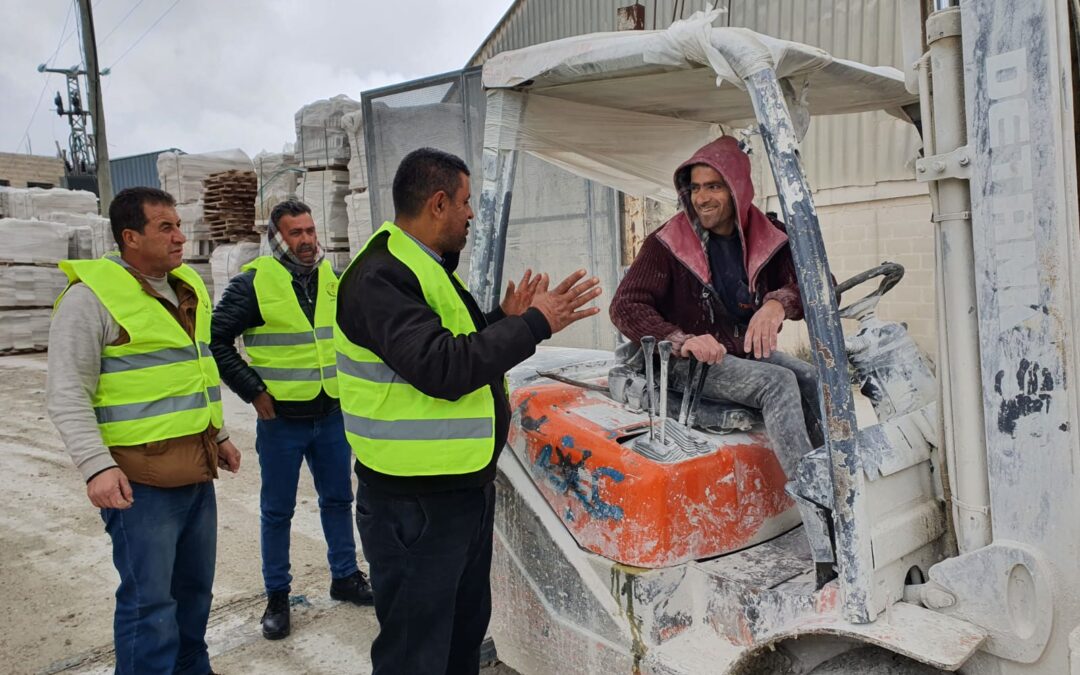After successfully pushing for a higher minimum wage in Palestine, unions now are campaigning to ensure the new law is enforced—and employers pay workers what they are owed.
A key part of the process is first determining the prevalence of underpayment. Through Solidarity Center support, the Youth and Campaign Committees of the Palestinian General Federation of Trade Unions (PGFTU) and the Palestine Journalists Syndicate conducted a survey of workers in low-wage jobs such as those in kindergartens, private schools, agriculture, textiles and media.
The survey found more than 62 percent of workers do not receive the minimum wage, a contrast to government assertions that 86 percent of workers are paid the new wage.
Sameer Abu Libdeh, 31, an education service worker from Qalqilya City, is paid $485 per month, and says the minimum wage law “unfortunately it is not enforced.
“Our demand is to get paid the minimum wage, which is 1,880 shekels ($520). We just want one official to show up and do justice to the poor [people] who get paid 1,700 shekels ($470). 1,700 is not enough. I talk like this due to the injustice I see among my colleagues.”
Hard-Fought Victory to Raise Minimum Wage
PGFTU spearheaded a successful campaign for a minimum wage boost, effective in January 2022, that for the first time in years enables workers to earn above poverty-level wages.
The victory to raise the minimum wage was hard fought, says Mohammad Badri, a telecom worker, union activist and executive member of the PGFTU, the umbrella federation for unions across the West Bank and Gaza.
“The employers are very greedy. They did not commit to this resolution and they don’t want to give higher salaries to their workers,” says Badri, who described PGFTU’s successful campaign last year on The Solidarity Center Podcast.
Going forward, the union will discuss the survey results with civil society organizations and build alliances around the minimum wage campaign to increase pressure on government and employers to enforce the minimum wage.
With Solidarity Center support, the PGFTU also is connecting with journalists to put a human face on the struggles of low-wage workers. The union signed a strategic partnership agreement with the Journalists Syndicate to increase media coverage of PGFTU’s campaigns, including the minimum wage.
“So far, most media coverage is static. I mean it often focuses on numbers, statistics, ratios,” says Ayham Abu Ghosh, a journalist in Ramallah City at the Economic Journalist Network. “It is the time now to go beyond numbers, to humanize minimum wage issues by focusing and telling the personal stories of those underpaid workers.”

